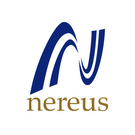Articles tagged with: ASH 2009 Meeting
News»

At the recent American Society of Hematology (ASH) annual meeting, there were several presentations comparing a drug regimen of Velcade (bortezomib), thalidomide (Thalomid), and dexamethasone (Decadron), abbreviated as VTD, with a drug regimen of thalidomide and dexamethasone, abbreviated as TD, in newly diagnosed multiple myeloma patients.
Update: VTD Versus TD With Double Autologous Stem Cell Transplantation
One of the ASH presentations showed that the addition of Velcade to a thalidomide-dexamethasone regimen and double autologous stem cell transplantation significantly improves the response rate in newly diagnosed multiple myeloma …
News»

Preliminary results from a clinical trial designed to assess the effect of adding thalidomide (Thalomid) to induction therapy prior to autologous stem cell transplantation show that it increases response rates in both young and elderly multiple myeloma patients. These results were presented on December 7th at the 51st American Society of Hematology (ASH) meeting.
A total of 1,970 multiple myeloma patients participated in this trial, which split patients up into two separate groups based on age. The younger patients, median age 59 years, were randomized to receive one of two induction …
News»

A new study suggests that NPI-0052 (marizomib), a new product being developed by Nereus Pharmaceuticals, Inc., may be more active and less toxic in patients with relapsed or refractory myeloma despite treatment with Velcade (bortezomib) and other drugs. Researchers presented the preliminary results of the Phase 1 trial on December 7 at the 51st annual meeting of the American Society of Hematology (ASH).
Found in marine bacteria, NPI-0052 acts, like Velcade, as a proteasome inhibitor. Both compounds prevent enzymes in cancer cells that regulate growth from working properly, which …
News»

The results from a new study indicate that treatment of newly diagnosed multiple myeloma with novel therapeutic agents improves kidney function in most patients, in comparison to treatment with conventional chemotherapy and a high-dose regimen of dexamethasone (Decadron). The authors of the study presented the results of the clinical trial on December 8 at the 51st American Society of Hematology (ASH) Annual Meeting and Exposition.
Multiple myeloma patients commonly experience complications with kidney function, and kidney impairment is associated with increased mortality rates. The Myeloma Beacon recently published a series …
News»

People with high-risk, smoldering multiple myeloma who are treated with Revlimid (lenalidomide) and dexamethasone (Decadron) take longer to progress to full-blown multiple myeloma than their counterparts, according to interim results of an ongoing Phase 3 study. Researchers presented the findings at the American Society of Hematology’s (ASH) 51st Annual Meeting.
“For the first time, we are seeing a study which is addressing the question of the early treatment of patients with smoldering myeloma,” said Dr. Brian Durie, a physician with the Cedars-Sinai Medical Center in Los Angeles and a founder …
News»

The 2009 American Society of Hematology (ASH) Meeting showcased several presentations on Zolinza (vorinostat), a histone deacetylase inhibitor developed by Merck Pharmaceuticals that is currently investigated for the treatment of multiple myeloma.
Zolinza alters the way a cancer cell’s DNA creates proteins, which is important in cancer treatment because such a drug can slow down cell proliferation, minimize mutations in DNA and control cell death.
Zolinza With Revlimid And Dexamethasone
Preliminary data from an ongoing Phase 1 study suggest that the combination treatment of Zolinza, Revlimid (lenalidomide) and …
News»

Results from recent Phase 1/2 clinical trials show that a perifosine, Velcade (bortezomib) and dexamethasone (Decadron) combination treatment is safe and effective for relapsed and refractory multiple myeloma. Perifosine is an alkyl-phosphocholine compound that controls cell division, cell growth and cell death, and is currently investigated for the treatment of multiple myeloma. Researchers presented their findings on December 5 at the American Society of Hematology’s 51st Annual Meeting.
“Great meeting—lots of exciting new developments for multiple myeloma,” wrote Dr. Paul Richardson, lead researcher in the study, in an …

